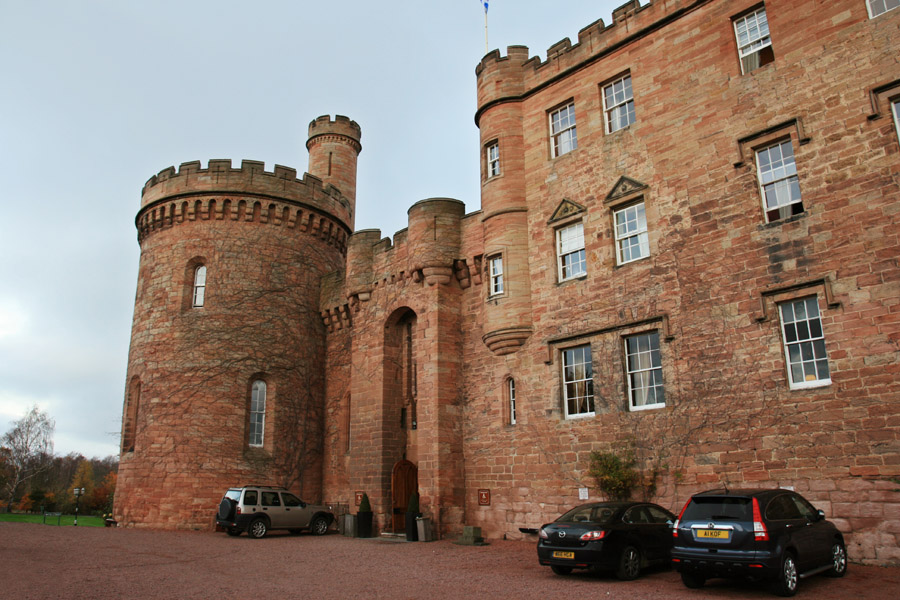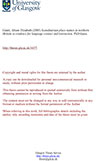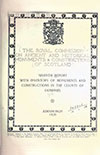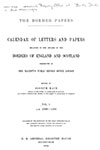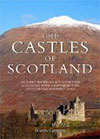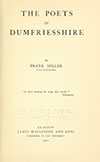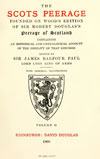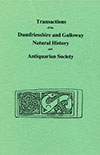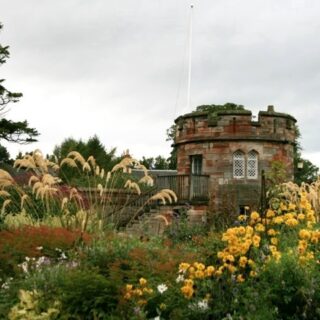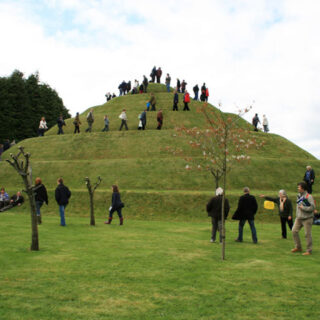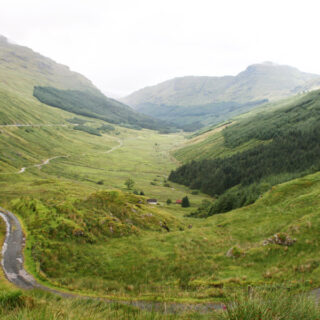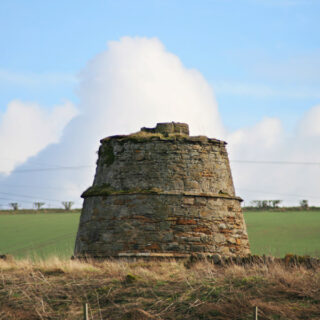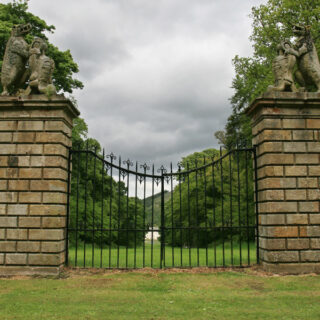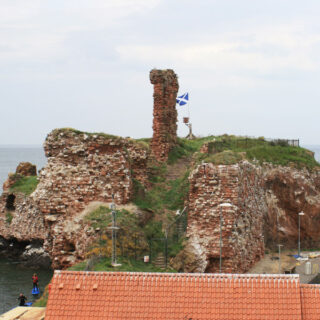Kirkconnel Tower
Kirkconnel Tower was a 16th century tower house which belonged to the Irving family.
The property was owned by the Bells until they forfeited it in the mid-15th century and it passed to the Irvings.
The superiority of Kirkconnel seems to have been owned by Sir John Carlyle, Lord Carlyle of Torthorwald, who in 1486 resigned numerous lands, including Ecclefechan and Kirkconnel Tower, which were then united into his barony of Carlyle.
In 1551 William Irving of Kirkconnel received a sasine of the lands of Woolcotes, Middlebie and other lands in Hoddom parish. A William Irving of Kirkconnel is on record in 1582, and again in 1583 as Will Urwen of Kyrkconill. He was the second son of Edward Irving of Bonshaw.
In 1585 the Irvings and Johnstones were involved in a feud with the Maxwells, probably started by the Maxwells raiding Johnstone lands (they burned Lochwood Tower in that year). John Maxwell, 8th Lord Maxwell and briefly the Earl of Morton, attempted to recover from the Irvings the “stone house” of Kirkconnel which had previously belonged to the Maxwells. William Irving held out however and Maxwell retreated, going on to attack the two “stone houses” of the Johnstones in Lockerbie (presumably Lockerbie Tower and Netherplace).
The feud rumbled on a for a number of years but wasn’t an isolated case. Towards the end of the 16th century the Irvings of lower Kirtledale were in a conflict with the Bells of upper Kirtledale. It’s possible that this may have been in regard to the shooting of Fair Helen of Kirkconnel.
Helen was said to have been the daughter of the laird of Kirkconnel and had two suitors. One is said to have been Adam Fleming of Fleming Hall while his rival may have been Robert Bell of Blackethouse. An attempt was made on Fleming’s life but Helen intervened and was shot instead. Over the years the details of the story have become confused and the surnames of the three characters are interchangeable between versions.
The feud with the Maxwells came to a head in December 1593 when the Irvings and Johnstones, led by Sir James Johnstone of Dunskellie, met the Maxwells at Dryfe Sands and inflicted a decisive defeat on the Maxwells, with the 8th Lord Maxwell dying in battle. Edward Irving of Bonshaw may also have died in the fight.
Edward Irving of Bonshaw, presumably a younger relative, William Irving of Kirkconnell and William’s son are included in a list of allies of Sir James Johnstone of Dunskellie in 1597 whom Sir James Douglas of Drumlanrig and his allies promised not to attack.
The Irvings are said to have sold their estate of Kirkconnel to Sir John Maxwell in 1609 and moved to the Hall of Ecclefechan, which confusingly they then renamed Kirkconnel. Which Maxwell this was is unclear. John Maxwell, 9th Lord Maxwell, shot and killed Sir James Johnstone of Dunskellie in 1608 and was forfeited in 1609 as a result. Another source suggests that the Irvings were deprived of Kirkconnel by a Robert, Lord Maxwell, in 1600, however Robert Maxwell didn’t become the 10th Lord Maxwell until 1613.
In 1622 the feud between the Irvings and the Maxwells seems to have flared up again, although the exact circumstances are unclear. One source suggests that Robert Maxwell, 1st Earl of Nithsdale, sent his younger brother, James Maxwell, to besiege Kirkconnel which he laid claim to, suggesting that it was in fact the Kirkconnel Tower in Kirkpatrick-Fleming parish. William Irving of Kirkconnel complained to the Lords Council on the 25th of January that James Maxwell and others had entered Kirkconnel armed with swords and pistols intending to kill him.
Another source states that it was John Maxwell, son of Robert Maxwell of Castlemilk, who led a band of Maxwells who attacked the “new” Kirkconnel in Hoddom parish and was later fined for wearing pistols and breaking into the house.
The Maxwells later moved to the nearby Springkell House and Kirkconnel fell into ruin. Nothing of it now remains.
Alternative names for Kirkconnel Tower
Bell's Tower; Kircconveth; Kirconnel; Kirk Concval; Kirkconnal; Kirckconnele; Kirkconnell; Kirkconvell; Kirkoneuill; Kyrkconill; Kyrkconnell; Kyrkconill; Kyrconeuel; Kyrkoneuel; Springkell
